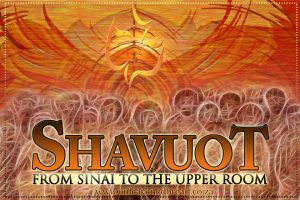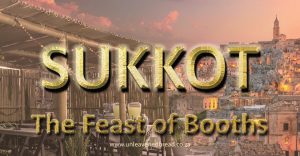Appointed Times
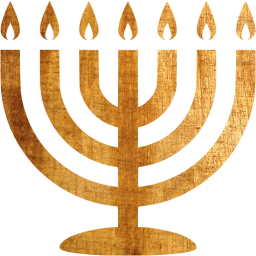
However, once Y’Shua (Yahushua) came, the shadows that foretold His coming and who He is did not pass away. These prophetic days and objects reflect the past and future coming of our King.
We as His children can enjoy the blessing of YHWH’s Appointed Times and special pictures of His perfect plan even today until He returns.
There is much to say and understand on the subject of Sabbath days and YHWH’s calendar. This article will only scratch the surface and therefore only serves as an overview.
The Weekly Sabbath (Shabbat)
1 Thus the heavens and the earth were completed, and all their array.
It is interesting to see that YHWH “blessed” and “set-apart” the Sabbath.YHWH put His approval on the Sabbath and set it apart from all other days as sacred. It is also the only day of the week that He named.
The Sabbath was meant to be a day for people to not only rest from their labour, but also to reflect on YHWH’s creation, provision, and all His goodness. It is a day to witness YHWH’s Sovereign control over creation. By ceasing to labour on the Sabbath we declare that YHWH is the One who makes things happen and not our efforts.
YHWH also states that the Sabbath is a ‘sign’ between Him and His people, forever. Wow.
13 “And you, speak to the children of Yisra’ĕl, saying, ‘My Sabbaths you are to guard, by all means, for it is a sign between Me and you throughout your generations, to know that I, יהוה, am setting you apart. Footnote: 1The only sign of יהוה setting us apart, the only sign of the everlasting covenant, is His Sabbaths, one of them being the seventh day Sabbath. This is repeated in Ezek. 20:12 & 20.
Mark 3:1-6; Luke 4:40-41; Luke 6:6-11; John 5:9; John 7:23; John 9:14
Y’Shua gave true meaning of the Sabbath: It is made for man; He is Master of the Sabbath
Matthew 12:1-8; Mark 2:23-28; Luke 6:1-5
Is Sunday the Christian Sabbath/’Lord’s Day’?
There are five passages which people will often use to try and show that Sunday is the ‘Lord’s Day’ or Christian Sabbath.
1. Matthew 12:1-8; Mark 2:23-28; Luke 6:1-5
2. John 20:19-29
4. 1 Corinthians 16:1-3
5. Revelation 1:10
1. In the first section, Matthew 12:1-8, Mark 2:23-28, and Luke 6:1-5 we see Y’Shua arguing with the Pharisees who confronted Him about picking heads of grain on the Sabbath.
First off, there is nothing in the Torah (Law) about not picking grain to eat on the Sabbath. This was an addition to the Law of YHWH by the religious leaders. Y’Shua was clearly NOT violating the Sabbath nor were His disciples. The Pharisees were trying to trap Him, but they themselves were the ones guilty of disgracing YHWH’s Sabbath.
Y’Shua ends His rebuttal to the Pharisees with the statement, “…the Son of Man is also Master of the Sabbath.” This means exactly what it says; Y’Shua is the Master of everything including the day that HE “blessed” and “sanctified” when He finished creating the universe. He also said that the Sabbath was made for man, and not the other way around. YHWH made the Sabbath for us to delight in and rest. We are not to be enslaved to this day against our will but are to enjoy YHWH’s provision and blessing in it. If this day is “made for man” then wouldn’t we at least want to see why YHWH gave it to mankind?
2. In his gospel, John notes that the Y’Shua appeared to them on the evening of His resurrection and then eight days later. First of all, there’s nothing in particular about that evening Y’Shua appeared to them. He hadn’t risen until that morning and then He seemed to have presented the saints of old to the Father as a firstfruits offering (see Firstfruits under the Spring Feasts). Then He traveled with two of the disciples, who didn’t recognize Him, to Emmaus. Then He waited for those two to run back to Jerusalem before He appeared in the upper room to all the disciples.
3. In Acts 20:7 we read that the disciples gathered together on the first day of the week to break bread. Then “Sha’ul, intending to depart the next day, was reasoning with them and was extending the word till midnight”
We have to remember that the biblical day starts at sundown. So when the sun sets on Saturday evening, that begins the first day of the week.
Many times after a Sabbath gathering, men would continue discussing the Scriptures and might go well into the early hours of the morning. It is a possibility that after a Sabbath gathering, when the sun had set and it was now the first day of the week, the disciples broke bread and listened to Sha’ul’s message until midnight. He would then leave the next day, Sunday morning. We are confused today because we have given names to days and start the day at a different time.
And even if they had gathered on the first day of the week to break bread….so what! I’m sure the disciples met on many days of the week, does that mean every day is the Sabbath now? Certainly not! Acts 2 tells us that the disciples gathered daily in houses and in the temple. Does that mean we can change YHWH’s Word and make any day of the week the Sabbath because of that? Again, certainly not! We CANNOT take ONE verse and change the entire Word of YHWH to fit our theology! It just doesn’t work that way, yet people have done just that. It’s unbelievable how blind we can be at times.
4. “On the first day of every week let each one of you lay something aside, storing up as he may prosper, that there be no collections when I come.”1 Corinthians 16:2
The argument here is that Sha’ul was giving instruction to the church that when they gathered on the first day of the week, they should take up an offering. However, we must look at context and meaning.
5. Revelation 1:10 says, “I came to be in the Spirit on the Day of יהוה, and I heard behind me a loud voice, as of a trumpet, ”.
First, what is John talking about here? He is seeing a vision of Y’Shua Who is revealing to him events that will lead to YHWH’s restoration of His people.
When John says, “I heard behind me a loud voice, as of a trumpet,” this brings to mind some verses that speak of Messiah’s return, especially using the image of the trumpet (Matthew 24:31; 1 Corinthians 15:52; 1 Thessalonians 4:16).
The phrase “Day of YHWH is used only here in Revelation. It is possible that John, being in the Spirit on the Day of יהוה, is telling his readers that he is being shown a vision, by the Spirit of YHWH, of the Day of יהוה, – the end times. In other words, being in the Spirit does not necessarily mean that John is meditating on YHWH’s word when Y’Shua appears to him, as some purpose. Rather, he is in, or carried away by, the set-apart Spirit to be shown the vision of YHWH’s day of wrath on His enemies and the day when His children will be united with Him forever. John uses this exact same phrase elsewhere in Revelation to state that he was experiencing visions by the power of the set-apart Spirit.
And immediately I came to be in the Spirit and saw a throne set in the heaven, and One sat on the throne.
Revelation 17:3
Hebrews 4:1-10 gives us a picture of our eternal Sabbath rest in YHWH, but until then we have a physical day in which we can rehearse for that Day with Him. In verse 4 he speaks of the seventh day then in verse 7 he speaks of a certain day signifying a specific, literal day.
And on the Sabbath day we went outside the city by a river, where there used to be prayer. And having sat down we were speaking to the women who met there.
The New Covenant authors never talked about keeping the Sabbath because no one had any problem keeping it!
One of the big arguments from people is that the New Covenant never says anything about keeping the Sabbath, but it mentions all the other nine of the Ten Commandments. Well, simply put, that’s because no one really had a problem keeping the Sabbath. In fact, they went overboard in keeping it, however, they kept it incorrectly for the most part.
Y’Shua fought with the religious leaders about how to keep the Sabbath because they were missing the point of the day. They were caught up in their rituals and man-made rules, but Y’Shua tried to show them what YHWH wanted on the Sabbath – to do good; to call it a delight. He healed people on the Sabbath day because that’s what His Father wants – for us to be healed in every way – and His day is a picture of that. He ceased creating and rested on the seventh day because everything was finished and it was good. Many of the Jews were stuck in trying to ritualistically carry out the Sabbath and in the process, they lost the meaning. It is a rehearsal and a reminder for the people of YHWH that we will enjoy eternity in His presence!
13 “If you do turn back your foot from the Sabbath, from doing your pleasure on My set-apart day, and shall call the Sabbath ‘a delight,’ the set-apart day of יהוה ‘esteemed,’ and shall esteem it, not doing your own ways, nor finding your own pleasure, nor speaking your own words,
14 then you shall delight yourself in YHWH. And I shall cause you to ride on the heights of the earth, and feed you with the inheritance of Yaʽaqoḇ your father. For the mouth of יהוה has spoken!”
The Catholic church, not YHWH, decided to “change” the Sabbath from the seventh day to the first day of the week.
Some quotes from the Catholic church about the Sabbath:
“No where in the Bible is it stated that worship should be changed from Saturday to Sunday… Now the [Catholic] Church… instituted, by God’s authority, Sunday as the day of worship. This same Church, by the same divine authority, taught the doctrine of Purgatory long before the Bible was made. We have, therefore, the same authority for Purgatory as we have for Sunday.”
Martin J. Scott – Things Catholics Are Asked About (1927).
“Perhaps the boldest thing, the most revolutionary change the Church ever did, happened in the first century. The holy day, the Sabbath, was changed from Saturday to Sunday. ‘The day of the Lord’ was chosen, not from any direction noted in the Scriptures, but from the Church’s sense of its own power… People who think that the Scriptures should be the sole authority, should logically become Seventh-day Adventists, and keep Saturday holy.”
Saint Catherine Church Sentinel, Algonac, Michigan, May 21, 1995.
“Of course the Catholic church claims that the change (Saturday Sabbath to Sunday) was her act… And the act is a MARK of her ecclesiastical authority in religious things.” H.F. Thomas, Chancellor of Cardinal Gibbons.
“Sunday is our MARK of authority… the church is above the Bible, and this transference of Sabbath observance is proof of that fact.” Catholic Record of London, Ontario Sept. 1, 1923.
1. That Protestants who accept the Bible as the only rule of faith and religion, should by all means go back to the observance of the Sabbath. The fact that they do not, but on the contrary observe the Sunday, stultifies them in the eyes of every thinking man.
2. We Catholics do not accept the Bible as the only rule of faith. Besides the Bible we have the living Church, the authority of the Church, as a rule to guide us. We say, this Church, instituted by Christ to teach and guide man through life, has the right to change the ceremonial laws of the Old Testament and hence, we accept her change of the Sabbath to Sunday. We frankly say, yes, the Church made this change, made this law, as she made many other laws, for instance, the Friday abstinence, the unmarried priesthood, the laws concerning mixed marriages, the regulation of Catholic marriages and a thousand other laws. “It is always somewhat laughable, to see the Protestant churches, in pulpit and legislation, demand the observance of Sunday, of which there is nothing in their Bible.”
Peter R. Kraemer – Catholic Church Extension Society (1975), Chicago, Illinois.
Sunday is a Catholic institution and its claim to observance can be defended only on Catholic principles…From beginning to end of Scripture there is not a single passage that warrants the transfer of weekly public worship from the last day of the week to the first.”
Catholic Press, Sydney, Australia, August, 1990.
No such law in the Bible. “Nowhere in the bible do we find that Jesus or the apostles ordered that the Sabbath be changed from Saturday to Sunday. We have the commandment of God given to Moses to keep holy the Sabbath day, that is, the seventh day of the week, Saturday. Today, most Christians keep Sunday because it has bee revealed to us by the [Roman] church outside the bible.”
Catholic Virginian, Oct. 3, 1947.
Question: How prove you that the church had power to command feasts and holydays?
Answer: By the very fact of changing the Sabbath into Sunday, which Protestants allow; and therefore they fondly contradict themselves by keeping Sunday strictly, and keep most other feasts commanded by the same church.
Question: Have you any other way of proving that the church has power to institute a festivals precept?
Answer: Had she not such power, she could not have done that in which all modern religionists agree with her – she could not have substituted the observance of Sunday the first day of the week, for the observance of Saturday, the seventh day of the week, a change for which there is no Scriptural authority.”
Stephen Keenan, a doctrinal catechism, p. 174.
Protestants do not realize that by observing Sunday, they accept the authority of the spokesperson of the Church, the Pope.
Our Sunday Visitor, Feb. 5, 1950.
From Rome’s Challenge “Why do Protestants keep Sunday?”
“The Adventists are the only body of Christians with the Bible as their teacher, who could find no warrant in its pages for the change of day from the seventh to the first. Hence their appellation, ‘Seventh-day Adventists’. They’re cardinal principle consists in setting apart Saturday for the exclusive worship of God, in conformity with the positive command of God Himself, repeatedly reiterated in the sacred books of the Old and New Testaments, literally kept by the children of Israel for thousands of years to this day, and endorsed by the teaching and practice of the Son of God while on earth.”
Rome’s Challenge, p. 2
“It’s not yet too late for Protestants to redeem themselves. Will they do it?… will they indeed take the written word only, the Scripture alone, as their sole authority and their sole standard? Or will they hold the indefensible, self contradictory, and suicidal doctrine and practice of following the authority of the Catholic church and wear the SIGN of her authority? Will they keep the Sabbath of the Lord, the seventh day, according to Scripture? Or will they keep the Sunday according to the tradition of the Catholic church.
Rome’s Challenge, p. 31
8 “Remember the Sabbath day, to set it apart.
Hebraic Insight…
The fourth of the ten mitzvot (commandments) is, “Remember the Sabbath day, to set it apart”. The word translated “remember” (zah-khor) means more than merely recalling something past, but suggests actively focusing the mind upon something in the present. But what are we to “remember?”
In Genesis 2:3 we are told that Elohim rested (shavat) from His creative activity and set apart the seventh day as the memorial of the work of His hands. YHWH called the seventh day kadosh, which means set apart as sacred, as exalted, as honored.
Just as YHWH set apart a time to focus on and honour the marvelous works of His hands, so we are commanded to regularly set apart a time to focus on and honour our own creative life in YHWH. Notice that both YHWH and man are to set apart the Sabbath and share in the esteem of this shared creative life.
Some Jewish sages believe that the Sabbath is a picture of the Olam Ha Bah, or world to come. In the present rhythm of this life, however, the Sabbath is a Set-apart time to become spiritually re-connected with our true identities as YHWH’s very children.
Additional Reading
Why The Sabbath– Author: Yosef ben Ruach
Shabbat – Heaven On Earth – Author: Rabbi Dani’el Rendelman
The Sabbath – Author: Glenn McWilliams
The Seven Dispensation – Author: C.J. Koster
When Does the Sabbath Begin – Eliyahu
You Lift Up The Head of All The Congregation – Author: Craig Peters
You Shall Keep My Sabbaths and Reverence My Sanctuary – Author: Craig Peters
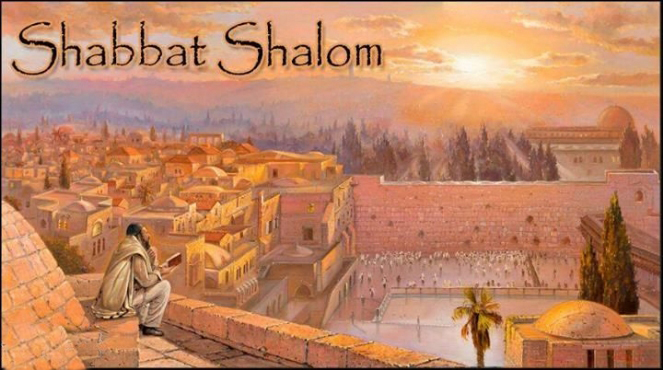
The New Moon
Perhaps the most important aspect of the New Moon celebration is to remember that YHWH is faithful and true in His promises and every new month/moon that comes along is a reminder of that!
Numbers 28:11
and for all the burnt offerings to YHWH on the Sabbaths and on the New Moons and on the appointed times, by number according to the right-ruling upon them, continually before יהוה;
New Moons were kept regularly and with reverence
The New Moon was of religious importance to people and was honored and celebrated as we can see in 1 Samuel 20:5 and 2 Kings 4:23. In 1 Samuel we see David planning not to go to the festival of the New Moon though he was expected to be their by king Saul. In 2 Kings, after the Shunamite woman’s son died, she went to Elisha. Her husband wondered why she was going to him because it wasn’t the New Moon or the Sabbath.
New Moons to be honored.
The New Moons, Sabbaths, and feasts that are mentioned by YHWH in the first chapter of Isaiah are contextually shown to be His festivals that the Jews had turned into abominations. Because of their sin, the celebrations became loathsome before YHWH. This does not in any way show that He abhorred the festivals, but the hypocrisy of His people.
New Moons not to be held in contempt
saying, “When does the New Moon pass so that we sell grain, and the Sabbath so that we trade our wheat, to make the ĕphah small and the sheqel large, and to falsify the scales by deceit,
New Moons will be kept in the future Kingdom
Isaiah 66:22-23
New Moons to be announced with the shofar!
Blow the ram’s horn at the time of the New Moon, At the full moon, on our festival day.
Even today, as we seek to follow our Master and Saviour we can fulfill His command to blow the shofar at the time of the New Moon in order to remember His faithfulness and reflect on His goodness.
Remember, as YHWH said through Jeremiah, the ordinance of the moon reminds us of His covenant.
His mercy endures forever!
Events that took place on the New Moon (beginning of the month)
– The Tabernacle was raised: Exodus 40:17
– The books of Numbers and Deuteronomy both begin on a New Moon: Numbers 1:1; Deut. 1:3.
– Hezekiah cleansed the Temple: 2 Chronicles 29:17
– The gateway of the inner court will be opened. Ezekiel 46:1
New Moons
Numbers 10:10; 28:11
1 Samuel 20:5, 18, 24
2 Kings 4:23
1 Chronicles 23:31
2 Chronicles 31:3
Ezra 3:5
Psalm 81:3
Isaiah 1:14
Isaiah 66:23
Ezekiel 46:1, 6
Hosea 2:11
Amos 8:5
Colossians 2:16
Moon
Joshua 10:13
Psalm 104:19
Isaiah 24:23
Joel 2:31
Revelation 8:12
Additional Reading
The Biblical Calendar and The New Moon – Author: Hoshana Rabbah
The New Moon – Author: Monte Judah
The Glory of YHWH and The Glory of Kings – Author: Craig Peters
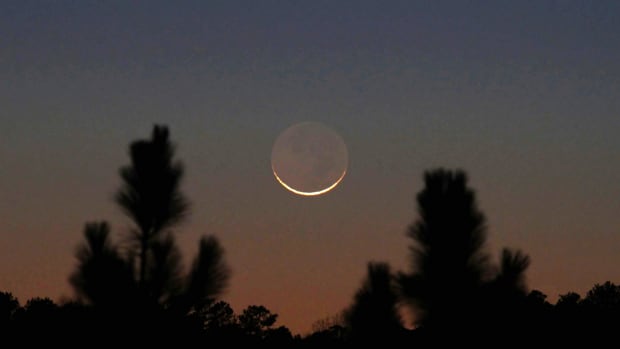
Feast Days (Moedim)
Leviticus 23:4
In the spring of every year, during the month of Abib (which means ripe ear, as in the barley), are the spring feasts of YHWH – Passover, Unleavened Bread, and Firstfruits. The Feast of Weeks (Pentecost) is fifty days after Firstfruits and falls around late spring early summer.
YHWH said that His people were to proclaim these feasts in the spring (and fall) at their appointed times. The Hebrew word for appointed times is moed which means “designated times; seasons; and has the strong, personal implication of a meeting.
The feasts are a time of meeting between YHWH and His people.
A personal and reflective time in which YHWH’s people can rejoice in His provision and faithfulness.
In Y’shua, the feasts have an endlessly abundant depth of fulfillment in them. We will see that Y’shua not only revolved His ministry in part around the feasts, but that He fulfilled them in every way! If He did that at His first coming, it is likely that He will do so in His second coming.
They are set-apart convocations, which is to say they are set-apart rehearsals! Think of it, everytime we celebrate the feasts we are rehearsing, or practicing, for our wedding day with the Lamb and our eternity with Him.
The celebration of Unleavened Bread lasts for seven days with a set-apart day, or high Sabbath, beginning and ending the feast. Passover (also the first day of Unleavened Bread – Matthew 26:17) has become the most recognizable of the three and today people usually understand Passover, when spoken of, to include them all.
YHWH commanded Israel to observe these feasts as a remembrance of their release from Egypt and their dependence on Him, but as we will see, all of YHWH’s people are to keep, and can rejoice in, these spectacular celebrations of YHWH.
The Fall Feasts of YHWH are especially powerful in terms of our future. They point to the ultimate consummation when the Messiah Y’Shua returns for us, His bride, and we will live with Him forever.
Beginning with the feast of Trumpets (a picture of our Messiah’s second coming), then on to the Day of Atonement (a stark reminder of the price our Saviour paid for us), and finally coming to the Feast of Tabernacles. This last feast of the season, and the year, is not only the time when Messiah was born on earth, but it also reveals to us a glimpse of our eternity with our Master and Saviour!
Found in the book of Maccabees, in the Apocrypha, is the story of Hanukkah. Around
the year 168 B.C. Jerusalem, under a peacable Syrian rule, was forced into complete submission byAntiochus IV Epiphanes, a Seleucid king (a successive ruler of the Seleucid Empire which had spawned from Alexander the Great’s rule).
Antiochus massacred Jews, outlawed their national religion, and defiled the Temple by sacrificing a pig on the altar to Zeus and pouring the blood on the Scripture scrolls. Many scholars today believe that Antiochus was siding with the Hellenists who were fighting with the traditionalists over who would be high priest.
He tried to force the Seleucid culture on the Jewish people, but this proved to be the beginning of his downfall, for there were some who fought against him. Mattathias the Hasmonean and Judah the Maccabee (literally, Judah the hammer) led a revolt against Antiochus and his army.
They rededicated the Temple around 165 B.C. hence the name ‘Feast of Dedication’.
In John 10:22-23, Y’Shua went up to Jerusalem, in the winter, to the Feast of Dedication. It says He walked in Solomon’s Colonnade which is part of the Temple.
The feast is also called the Feast of Lights because of the supposed miracle that is recorded in the Talmud (a collection of rabbinic writings concerning man’s laws! that YHWH performed this after the dedication.) According to tradition, the Jews did not have enough oil to light the menorah and keep it lit. It would take almost eight days to get new oil made. However, they obeyed the command and lit it anyway knowing that it should not be out. YHWH then kept it lit for the entire eight days until they had produced the oil.
Although this makes for a nice story, unless it is in the pages of Scripture, it is for us to question and read with caution. There is no doubt that YHWH could do such a miracle, but not even the books of 1 and 2 Maccabees record this “event”. It is only found in the Talmud which is NOT the word of YHWH.
However, we can still remember that Y’Shua said He is the light of the world. We, too, are called to be light in a darkened world. Like a city on a hill, we should “Let your light so shine before men, so that they see your good works and praise your Father who is in the heavens.” Matthew 5:14-16.
Chanukah and Dreidel Discoveries
Purim – Feast of Lots – Twelfth month (Feb./March) 14th day
Purim comes from the book of Esther. During the reign of king Ahasuerus
(Xerxes I), a feast was held during which the king ordered the queen to be brought before him, but she refused. The queen was discarded and the search for a new queen began. At this time, many Jewish people who had been in captivity had returned home to Israel. However, many others remained in Persia. A scribe name Mordecai was one who remained along with his cousin Hadassah whom he took as his own daughter. She would be chosen the new queen, but she had to hide her heritage and so changed her name to Esther which means “star”.
A man named Haman plotted to kill all the Jews in the land, and as it became known to the Jews, Esther soon found out and became very distressed. She told Mordecai to have the people fast for three days and she would enter the king’s courts to tell him the truth of the plot and her heritage. To enter uninvited was against the law and resulted in death, but Esther was willing to take the risk to save her people.
She asked the king and Haman to a series of banquets where she finally told the king of the evil plot. Because of her braveness all the Jews were saved from certain annihilation. The book is a fascinating look at YHWH’s providence and protection even though He’s not even mentioned once in the story.
The word Purim means “lots” which stood for Haman’s use of casting lots to determine on which day the Jews would be killed.
Esther was a story of YHWH’s people being saved from an irrevocable decree of certain death.
Through YHWH Himself, Messiah Yahushua, we have been saved from an irrevocable decree of certain death as well. YHWH must judge sin, which means we all deserve death since we’re allsinners. But when Y’Shua died on the cross, He saved all those who would believe in Him from certain death.
The twelfth month on the Hebrew calendar would be the same as our February. It’s no coincidence that Purim is technically at the same time as another holiday that celebrates “love” – Valentine’s Day. However, there are some major differences.
Esther portrays true, Godly love in that she was willing to give her life for her people.
We can also see the modern celebration practices that accompany Purim in many Jewish and even Messianic circles. That in which people dress up in elaborate masks and costume with noise makers and other trinkets. All of this is very reminiscent of Mardi Gras which falls around the same time as Purim on our modern calendars. Mardi Gras itself is nothing more than lustful, pagan celebration that has come from millenia of humanism.
Satan is always trying to throw in counterfeit celebrations in the same manner as what YHWH has put in place. The enemy does this to distract us from anything truly YHWH centered.
But for now, know that YHWH’s idea of love is vastly different than that of the world’s. The story of Esther is a wonderful example of a love that is truly Messiah-like.
Additional Reading
Passover/Pesach
Can man change YHWH’s worship days?-The 15th Enigma – Evangelistic Assembly of Yahweh
Harmonizing The Scriptures on Passover – Evangelistic Assembly of Yahweh
Is a 14th Passover High Sabbath new? – Evangelistic Assembly of Yahweh
Is Passover A Feast Day ? – Evangelistic Assembly of Yahweh
Passover Day – A High Sabbath – Evangelistic Assembly of Yahweh
When is the Seventh Day of Unleavened Bread ? – Evangelistic Assembly of Yahweh
Passover – 3 Systems Compared – Evangelistic Assembly of Yahweh
Septuagint – Does it teach the 14th or the 15th? – Evangelistic Assembly of Yahweh
Unleavened Bread
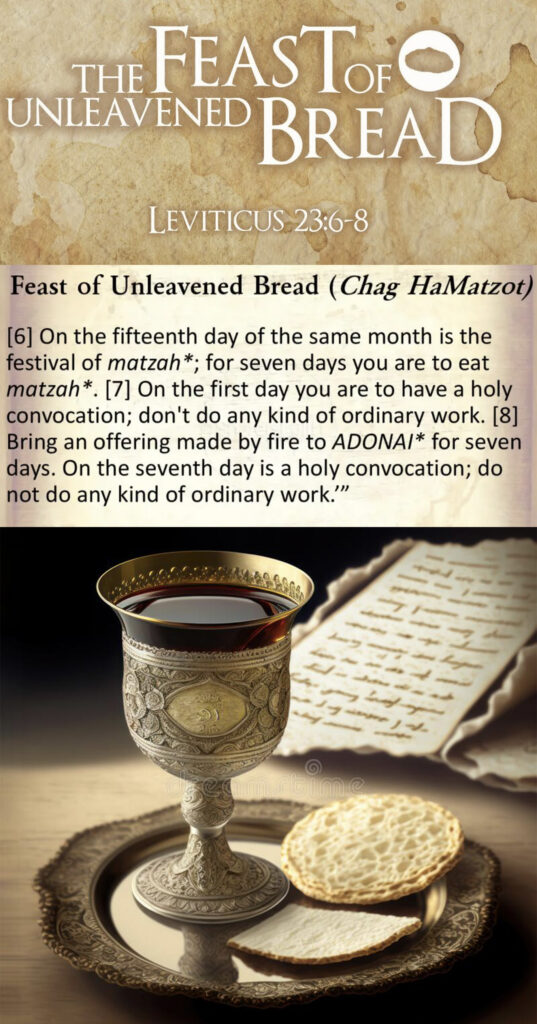
Pentecost/Shavuot
Leviticus 23:15-22
15 And ye shall count unto you from the morrow after the sabbath, from the day that ye brought the sheaf of the wave offering; seven sabbaths shall be complete:
16 Even unto the morrow after the seventh sabbath shall ye number fifty days; and ye shall offer a new meat offering unto the LORD.
17 Ye shall bring out of your habitations two wave loaves of two tenth deals: they shall be of fine flour; they shall be baken with leaven; they are the firstfruits unto the
LORD.
18 And ye shall offer with the bread seven lambs without blemish of the first year, and one young bullock, and two rams: they shall be for a burnt offering unto the
LORD,
with their meat offering, and their drink offerings, even an offering made by fire, of sweet savour unto the LORD.
19 Then ye shall sacrifice one kid of the goats for a sin offering, and two lambs of the first year for a sacrifice of peace offerings.
20 And the priest shall wave them with the bread of the firstfruits for a wave offering before the LORD, with the two lambs: they shall be holy to the LORD for the priest.
21 And ye shall proclaim on the selfsame day, that it may be an holy convocation unto you: ye shall do no servile work therein: it shall bea statute for ever in all your
dwellings throughout your generations.
22 And when ye reap the harvest of your land, thou shalt not make clean riddance of the corners of thy field when thou reapest, neither shalt thou gather any gleaning of
thy harvest: thou shalt leave them unto the poor, and to the stranger: I am the LORD your God.
Further reading:
Shavuot Feast of Weeks – Author: Dean and Susa
Trumpets/Yom Teruah
Yom Teruah – Author: Rabbi Dani’el Rendelman
Yom Teruah – Author: Julie Parker
Yom Teruah – Author: Sheepfold Gleanings
Yom Teruah – Rosh Hoshanah error – Author: Nehemia Gordon
Yom Teruah and the Two Silver Trumpets – Author: Batya Wootten
Atonement/Yom Kippur
Tabernacles/Sukkot
Other
Acceptable Worship -Evangelistic Assembly of Yahweh
Chanukah and Dreidel Dicoveries – Author: Rabbi Daniel Rendelman
New Year-Aviv Barley for Beginners – Norman B Willis
The Seven Festivals Of The Messiah – Author: Eddie Chumney
Chapter 1 – The Appointed Feasts
Chapter 2 – An Overview Of The Festivals
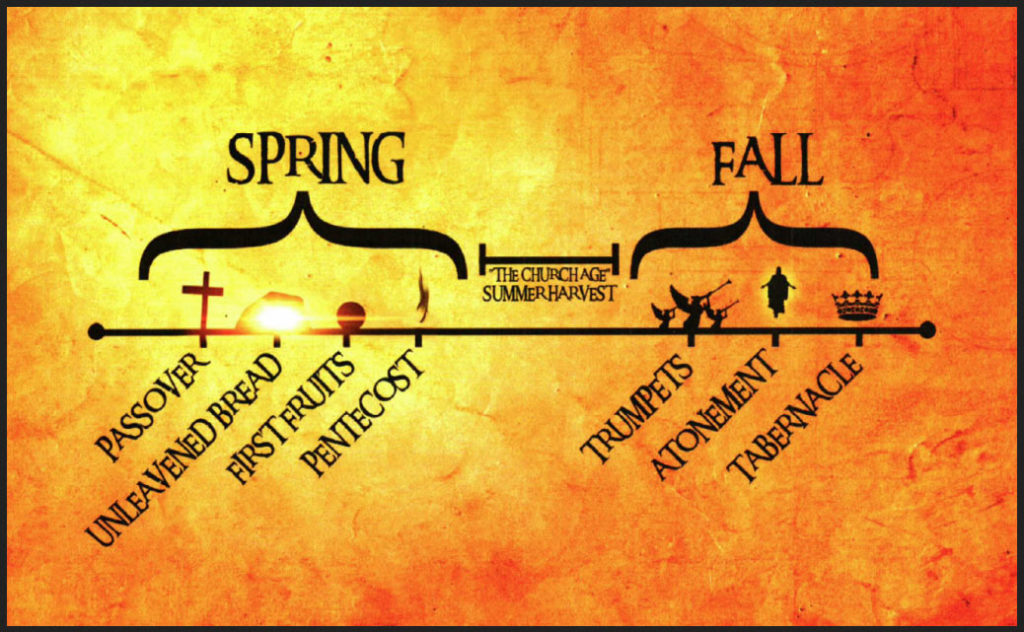
The Biblical Calendar
For a more complete understanding of the Mark please read this second article as well – The Beast System vs The Law Of YHWH
(7) Admissions of the Calculated Rabbinical Calendaris an article using the Jewish Ecylopedia and COG Quotes showing that the Churches of God do know and have admitted to knowing that the Hebrew Calendar they now adhere to, was and is in error. Will you obey YHWH or will you continue to follow the traditions of men?
(8) The Sign The Seal and The Secret is a very deep understanding of the Jubilee message and conclussion of YHWH’s Plan.
Additional Reading
Admissions on the Calculated Rabbinical Calendar – Author: Brian Hoeck
Calendar System Fundamentals – Author: Felicia Trecek
Development of the Hebrew Calendar – Author: John Lemley
Should We Follow the Jewish Calendar – Author: Don Esposito
The Jewish Calendar – Author: Jewish Encyclopedia
Explore

